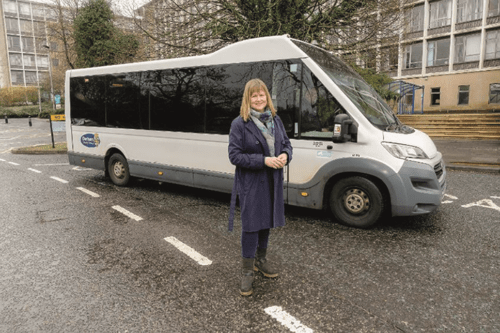
A new bookable bus service has been launched in County Durham which the local council says will make it easier for people to get to work where local bus services are not available.
The new Link2Work scheme allows passengers to book their journeys to work and back in advance and tailor them around shift patterns. Journeys can be booked up to 14 days in advance, and up to 1700hrs the day before travelling, using a 24/7 phone line.
Customers can tell the operator which days they need to travel and the location from where they will be picked up, and the bus operator will arrange the journey, Durham County Council says. The service will cover Stanley to Consett Hownsgill and to Team Valley, West Auckland, Bishop Auckland and Shildon to Aycliffe Business Park, and Trimdon and Sedgefield to Aycliffe Business Park. Following an initial free travel period, the fare will be £2 per journey, paid when boarding the bus, and concessionary bus travel passes can also be used.
Councillor Elizabeth Scott, Durham’s Cabinet member for economy and partnerships, said: “Access to travel can be one of the biggest barriers to learning, training, work, and social opportunities. For those who rely on public transport, it can be a significant challenge to get to and stay in work if services run outside of their shift patterns. The Link2Work scheme aims to remove this barrier and ensure residents have the freedom to access those work opportunities. It also promotes the use of public transport and sustainable travel, aligning with our net zero aspirations to tackle climate change.”
Following a successful pilot elsewhere in the region, a second scheme has also been introduced, to offer free bus travel to care leavers in County Durham. This will provide travel to around 200 young people aged 18 to 25 across the county who have recently left local authority care. They will each be provided with a smart card with an annual season ticket, providing a year’s travel on buses across County Durham, Northumberland, and Tyne and Wear.
Both schemes have been funded through the region’s Bus Service Improvement Plan (BSIP).

